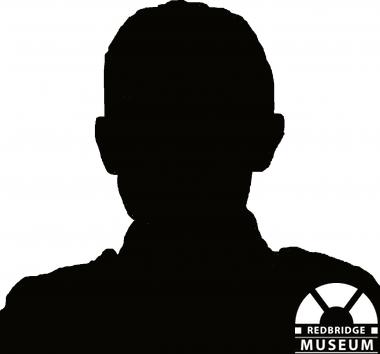
Leslie was born on 30th January 1896 and attended Ilford County High School between 8th September 1907 and 2nd June 1911. Previously, he had been a pupil at Cleveland Road Elementary School. He was the son of John and Elizabeth, who moved from 9 Granville Road to 71 Northbrook Road (both in Ilford) whilst he was at school. His father was an Inspector for Home and Colonial Stores.
Whilst at Ilford County High School, Leslie was a member of the Philatelic Society and exhibited his nearly complete collection of USA stamps in 1911. Upon finishing his education, Leslie became a Boy Clerk in the Civil Service.
Leslie is recorded on the first Roll of Honour (in the Christmas 1914 school magazine). It gives his regiments as ‘L.R.B.’ He enlisted with the 1st/5th Battalion of the London Regiment (service number 690). He wrote a letter to the school (which was published in the Summer 1915 edition of Chronicles) in which he sent ‘interesting news of the doings of the L.R.B (London Rifle Brigade).’
He wrote, ‘I have been carrying sandbags, rations, etc., up to the trenches- in one place only forty yards from the Germans. This would be exciting if one were not too fed up with his load to get excited. Last night there was a bit of panic and we had to duck and keep perfectly still while a couple of volleys went around and over us. If one keeps perfectly still he cannot be seen even with the strongest flare, but that night we were carrying wood and the whiteness gave us away. My worst experience so far was in crossing. I stuck it for two hours and then… (here follow distressing particulars- Editor).’
The letter was censored to remove a graphic description of the horrors of trench warfare. Less controversial matters such as Leslie’s attempts at speaking French to local orange sellers and the slippery nature of roads (which were renamed with London street names) were passed for publication. The editor, also the headmaster, then quoted from Leslie’s most recent letter, noting that, ‘since he wrote this Bleaden has been hit, but not, we are glad to say, seriously.’
In the second letter, Leslie wrote;
‘I was hit in the nose by a piece of shell. The wound is not serious, and is almost healed on the outside, but the nose is still stuffed up inside, and I have to have it syringed- a beastly sensation. I shall take care to be hit somewhere unsyringeable next time… My worst experience was riding on a galloping gun limber over cobbles and shell holes, with my field dressing round my neck and my nose pouring with blood. Still, I had walked six miles, and anything seemed better than eight miles a pied. The ambulances could only be used for the very serious cases, owing to the large number of casualties. The road was shelled all the way along… In the village of Zonnebeke there is not one undamaged house. It is a most remarkable thing that the altars of shelled churches never seem to suffer, and I have never seen the image in any of the many wayside chapels damaged…’
Leslie’s last letter to the school appeared in the Summer 1916 magazine, which would have been published around the time of his death. It was a letter written in April 1916 and again offered a unique insight into life on the front line in France and Flanders;
‘I am once more in this flat depressing country. My regiment is ‘way down South,’ but I have the misfortune to be attached to an entrenching battalion. My address is L.R.B. , attached 9th Entrenching Battalion, B.E.F. My part now is that of an exceedingly versatile navvy- without a Trade Union to protect my interests. On the other hand, I suffer from a veritable surfeit of foremen, who from their manner are following their peace-time occupation. I hate to make invidious distinctions, but I should imagine that one or two act their part on the stage of civil life in an even less exalted sphere. One of our men remarked bitterly of his N.C.O. that he would be hanged if he would buy matches or bootlaces from him after the war. On the whole we have quite a good time- food quite up to expectations; our quarters more comfortable than we longed for in our wildest hopes; more freedom than I should have believed possible. French is of little use nowadays. You can imagine the shock I received in an estaminet the other day when a man asked for ‘’arf an’’arf’ and received it almost before the magic words were spoken. I spent considerable time one day trying to ask in French for the globe of an electric pocket lamp. In despair I tried English, and was understood instantly!’
Sadly, ‘Rifleman L. Bleaden, L.R.B.’ was listed upon the school’s Roll of Honour as amongst the dead in the Autumn 1916 edition of Chronicles. He had died on 1st July 1916 during the infamous first day of the Somme, aged 20. His name is recorded on the Thiepval Memorial.
Research by Andrew Emeny, History Teacher at ICHS
Sources:
Ancestry.com
ICHS school records and magazines
Commonwealth War Graves Commission
Note
Ilford County High School started life as the Park Higher Grade School in 1901 in Balfour Road, Ilford. It was renamed Ilford County High School (or initially County High School, Ilford) in the years after the school’s management was transferred from Ilford School Board to Essex Education Committee in 1904.
